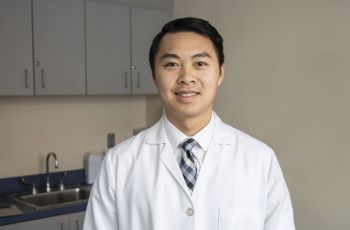Colon & Rectal Surgery

Services We Offer and Conditions We Treat:
Specializing in the care of illnesses of the colon, rectum, and anus with individually crafted medical treatments and advanced surgical techniques.
The Center for Colon & Rectal Surgery at The GW Medical Faculty Associates manages both benign and malignant diseases of the colon, rectum, and anus. Our colon and rectal surgeons diagnose and treat patients for:
- Colon, rectal, and anal polyps and cancers
- Surgical complications of inflammatory bowel diseases – Crohn’s disease and Ulcerative Colitis
- Diverticulitis
- Pelvic Floor Disorders, including rectal prolapse, fecal incontinence, and chronic constipation
- Anorectal disorders, such as hemorrhoids, perianal abscesses, anal fissures, and anal fistulas.
We are proud to be the first in metropolitan Washington, DC area to perform robotic colon resections. Our colorectal specialists currently perform more of these procedures than any facility in the region. Our surgeons are trained in the use of the da Vinci surgical system and are honored to serve as a national training center for surgeons around the country. We offer the latest minimally invasive surgical techniques, including, but not limited to, robotic surgery, single incision laparoscopic surgery, Medrobotics flex robot, and transanal minimally invasive surgery (TAMIS).
New Patient Forms
News & Information
Among the cancer screenings you should regularly get after age 40, colorectal cancer, a stealthy disease that can have zero symptoms in its early stages, is one of the most important. Matthew Ng, MD, assistant clinical professor of surgery at the George Washington University Medical Faculty…



